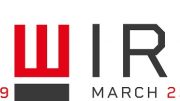Acceleration of digital health capabilities in the last decade has been transformational with the rapid development of tools used to collect and access data. The need for innovation in the space is fueled by both consumer demand and regulatory shifts around interoperability. In May 2020, the Centers for Medicare & Medicaid Services (CMS) published the Interoperability and Patient Access Final Rule. This regulation has policies that mandate or promote the implementation of Application Programming Interfaces (APIs) by payers to enhance the electronic exchange of healthcare data. This includes sharing information with patients and the exchange of information between payers and providers.
The abundance of data accrued and used in healthcare necessitates efficient, scalable and safe processes to manage its electronic data interchange. Key stakeholders in the healthcare ecosystem, specifically health plans, are rapidly transitioning data management and infrastructure – critical systems – to the cloud. Additionally, there is major capital up for grabs for cloud-focused companies. According to a 2021 McKinsey & Company report, cloud capabilities have the potential to generate value of $100 billion to $170 billion by 2030. By adopting a hybrid cloud structure, companies can maximize the capabilities of both the public and private cloud and facilitate optimal data exchange to meet consumer and government demands.
Adapting to Hybrid Cloud Models
Healthcare technology partners are adapting to these new industry drivers to help facilitate industry wide modernization of their systems. Specifically, the hybrid cloud model is being adopted by many innovators. The hybrid cloud framework is the fusion of public cloud infrastructure, like Amazon Web Services (AWS), Google Cloud Platform (GCP) or Microsoft Azure, with proprietary data center servers, and the private cloud which is specific to a single company. This trend in digital health mirrors strategies embraced SaaS industry leaders like Salesforce. Hybrid cloud models include the power and scalability of cloud services while maintaining control over critical customer data within the solution or vendor’s own data center, offering tech users a robust and agile foundation for operational business functions.
Hybrid cloud solutions are designed with the added benefit of multi-cloud support which means software is built agnostic of the underlying infrastructure services and ensures a simple transition should the provider opt to transition from one host to another (AWS, GCE, Azure etc.) This approach to data management lends companies the benefits of the public cloud, like scalability, while also keeping their resources dynamic and under the company’s control.
Benefits of a Cloud Approach
The hybrid cloud structure offers flexibility for health plans of all sizes and purposes to grow and adapt with businesses. Tech partners utilizing a hybrid cloud solution equip health plans with scalability of operations based on the nature of the workload. When population size or the reach of a company increases or decreases, this approach can readjust to the new scale and priorities of health plans.
Hybrid cloud models offer the highest level of security for personal health information. They are typically aligned with third-party assessments and exercises that continuously validate and improve their security practices. As businesses grow and scale, this aspect is a critical detail for health plans managing a significant cache of member data points. Coupled with HITRUST certification, data isolation, encryption, access control, and network isolation, vendors operating a hybrid cloud solution maintain the same, if not better, security integrity as on-premises solutions. Considering the sensitivity of these data silos, the confidence instilled by incorporating a hybrid cloud model is invaluable.
Along with yielding direct benefits from incorporating the hybrid cloud, this infrastructure also provides various adjacent benefits for health plans and greater stakeholders. Health technology innovators transitioning products and applications to SaaS/cloud services are maximizing operational costs and reducing their carbon footprint as well. Vendors can efficiently manage vast amounts of electronic data without compromising on-site data storage capabilities. Partners that offer SaaS technology are using fewer machines and hardware therefore using less energy and have a lower impact on the environment. As technology continues to evolve and new efficiencies are created, the external impact of the hybrid cloud will scale just as the internal benefits will over time.
The rapid development of digital health capabilities due to regulatory and consumer demand continues to push the limits of data management in the industry. By adopting hybrid cloud infrastructure, health plans maximize their scalability, security and flexibility while also reaping significant benefits in terms of efficiency and external influence. As the healthcare ecosystem continues to evolve with new technology and appropriate regulation in tow, companies can remain dynamic and malleable by incorporating the hybrid cloud into their critical systems infrastructure.
By Sundar Shenbagam, chief technology officer, Edifecs





